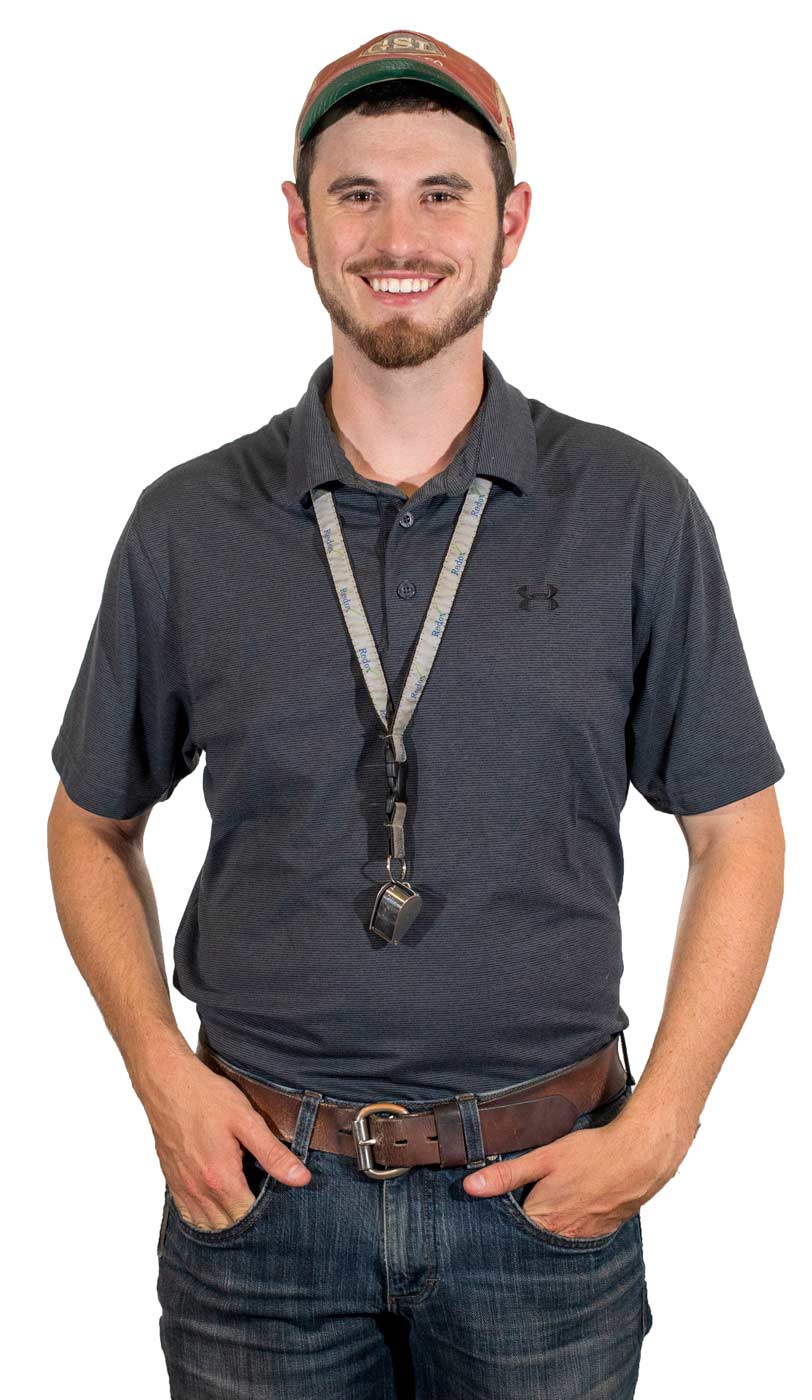family background/Matt is the first generation of his family to work in agriculture. He has a horticulture degree from Washington State University and a career as a crop consultant. He’s the son of Michelle and Dave Duke.
age/27
grower/in Yakima, Washington
crops/Apples, cherries, pears and stone fruit
business/G.S. Long
How did you get your start?
 I grew up in Spokane. I didn’t know a single thing about agriculture. I didn’t grow up being exposed to it other than the food on my plate.
I grew up in Spokane. I didn’t know a single thing about agriculture. I didn’t grow up being exposed to it other than the food on my plate.
By the time I was near graduation from high school, Ted Dietrich, a family friend, got me interested in the industry. He pointed me toward WSU, guided me in what classes I needed to take and the direction I needed to go to pursue this career.
Why major in agricultural production management?
It was a push to find a career that had stability and long-term growth. I wanted to find something that I could find enjoyment in and that was outside, not sitting behind a desk. Those factors pushed me in that direction. This job is exactly what I was looking for.
What was your college path like?
When I was starting out in my agriculture coursework, I didn’t really know what I was going to be learning. It started out with a lot of general courses that try to set students up with a solid foundation. Then, as I got into the later courses, it was easier to find my way.
During my junior year, I had an internship with G.S. Long where I was exposed to field work, and then the courses began to sync in.
Things like soil sciences, chemistry, crop sciences, biology, entomology — those kinds of courses really took hold — helping me understand what I was going into.
What did you learn through the internship?
I really think they’re important if you’re on the fence about a job or career path you want to take. It’s something that gives you exposure to a field and helps give you an idea whether you want to continue or if you should change gears and refocus your efforts on a different career path.
I think my internship helped me understand what I’d be doing as a consultant and focus my final college courses. For instance, before the internship, entomology wasn’t on my radar until I got out in the field.
I was able to talk with other consultants and I learned that I needed to take entomology courses before graduating.
What are some of your duties as a consultant?
I’m learning every single day I come to work and I’m finding ways to be better. I feel like I’m getting a graduate level of education being out in the field.
From inspecting for insects, writing recommendations, figuring out what needs to be done to keep the crop clean and getting it into the sheds.
Going into the fall, I’m in meetings preparing for the next year, learning and staying up to date on the latest regulations and newest products.
What changes have you seen from college to now?
During my undergraduate courses, there was a lot of talk about organics. It wasn’t happening just yet on a large scale. I’ve seen a big expansion in organic production in tree fruit since I joined G.S. Long five years ago.
What would you tell other young growers?
For a new individual coming into the industry, you need to know that working in agriculture is harder than you might think, but you get out what you put in.
Some of the hardest working people you’ll ever meet work in this industry — all aspects of this industry.
Being able to provide a clean product during the year and help growers get through the season is very rewarding. It’s nice being part of something many people have pride in and who put in a lot of time and energy.






Leave A Comment